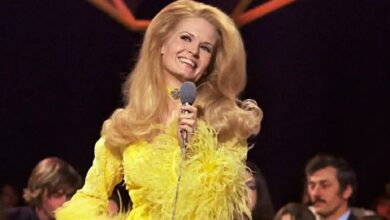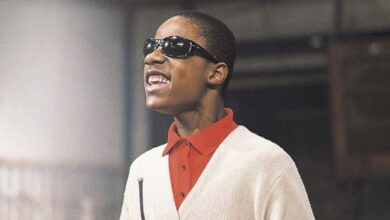Bee Gees’ “Too Much Heaven” Lifts Pop into Soulful Territory and Marks a Defining Moment of Global Compassion in 1978
When “Too Much Heaven” was released in late 1978, it arrived at a time when the Bee Gees were at the height of their influence, reigning over the charts with disco-driven hits. Unlike the pulsating anthems of the era, this track emerged as a gentle, emotionally rich ballad that showcased the trio’s versatility. As part of the Spirits Having Flown album, the single rose to number one in the U.S. in early 1979, remaining there for two weeks and further affirming the group’s global appeal.
The Bee Gees—Barry, Robin, and Maurice—had by this time evolved far beyond pop stardom. From their early days producing baroque-pop classics to reinventing themselves as disco innovators, they had shown an uncanny ability to navigate changing musical landscapes. With their celestial harmonies and falsetto stylings, they had already defined a generation. “Too Much Heaven,” however, marked a tonal shift, one that steered them into deeply soulful territory, stripped of the glitz and glitter that had defined much of their recent output.
What made the release of “Too Much Heaven” even more remarkable was its philanthropic purpose. All royalties from the track were pledged to UNICEF’s global hunger fund, making it not only a commercial hit but a powerful gesture of global compassion. Barry Gibb expressed that the brothers wanted their contribution to have genuine impact, both emotionally and financially. Its message—centered on love’s scarcity in a world starved of kindness—made the song an anthem for hope and empathy.
The recording sessions took place at Criteria Studios in Miami, during a fertile period of creativity for the band. With Albhy Galuten and Karl Richardson producing, the arrangement leaned into lush orchestration without losing intimacy. Barry’s lead vocals floated above Maurice’s warm bass lines and Robin’s complementary harmonies. The composition was technically intricate, yet never lost its softness, giving the song a uniquely delicate power that resonated deeply with listeners across genres.
Critics and fans alike received the song with admiration upon its release. It became the group’s sixth consecutive number-one single in the United States, placing them in a rare echelon with legends like the Beatles. The track also dominated international charts, reaching the top in Italy, Canada, and Switzerland. What stood out was how it diverged from their disco identity, proving that their melodic ballads were just as impactful—if not more enduring—than their dancefloor staples.
In the wake of their dominance on the Saturday Night Fever soundtrack, critics feared the Bee Gees would remain tethered to disco. But “Too Much Heaven” reintroduced audiences to their artistic breadth. It served as a gentle reminder that their musicality extended far beyond the genre that had propelled them to superstardom. The fact that the track was tied to UNICEF only amplified its cultural weight, making it a pop song with a global conscience.
When the Bee Gees performed “Too Much Heaven” at the Music for UNICEF Concert in January 1979, it became more than just a musical highlight—it was a defining moment in music diplomacy. Sharing the stage with acts like Donna Summer and Earth, Wind & Fire at the United Nations, the Gibb brothers used their voices to advocate for change. That evening broadcast their message to millions and solidified their commitment to using music as a force for good.
In the years that followed, the influence of “Too Much Heaven” could be heard in the works of numerous artists who took cues from its emotional depth. The Bee Gees had paved a path where vulnerability and strength coexisted in a pop format. Their ballad opened doors for future icons—artists like Lionel Richie and Whitney Houston—to explore themes of love, longing, and spiritual yearning within mainstream music with similar grace.
Though covered by artists ranging from soul legend Al Green to contemporary pop singers, most renditions of “Too Much Heaven” aim to honor its original emotional core. However, the distinct harmonies of the Gibb brothers remain unmatched. The track became a fixture in romantic playlists, best-of compilations, and deeply personal moments like weddings and memorials. Its emotional resonance continues to endure, proving its timelessness across generations.
Behind the scenes, the Bee Gees were also facing the pressures of fame. Despite global adulation, their personal lives were under strain. Yet, in songs like “Too Much Heaven,” there was unity—an emotional glue that bound them together creatively. The song’s charitable mission added a layer of fulfillment beyond commercial success. It became a rare instance of pop stardom intersecting with genuine humanitarian purpose, making their success feel more grounded.
Even decades later, “Too Much Heaven” maintains its prominence in popular culture. Whether through radio airplay, digital streaming, or retrospective performances, the song continues to reach new listeners. Its blend of soulful tenderness and lyrical depth marks it as one of the Bee Gees’ most beloved works. It often stands as the ballad that encapsulates the emotional intelligence and maturity of their musical evolution.
Perhaps the song’s greatest legacy lies in how it expanded the emotional vocabulary of pop. In its wake, the idea of using falsetto for intimate, spiritual expression gained momentum. The Bee Gees defied the limitations of genre expectations and proved that vulnerability could carry the same power as energy in mainstream music. Their success inspired a generation of vocalists to stretch further, emotionally and sonically.
Following the heartbreaking losses of Maurice in 2003 and Robin in 2012, “Too Much Heaven” has taken on new emotional weight. Barry’s solo renditions of the song, often marked by visible emotion, underscore the bond the brothers shared. Each performance feels like a whispered tribute, a love letter wrapped in melody, reminding audiences of both the beauty and brevity of life and art.
“Too Much Heaven” is more than a song in the Bee Gees’ discography—it’s a testament to their ability to combine emotion, artistry, and purpose. It continues to resonate because it was never just about romantic love; it was about giving, about connection, about something greater than chart positions. In a world that often forgets the quiet power of empathy, this song still whispers, and still moves.



